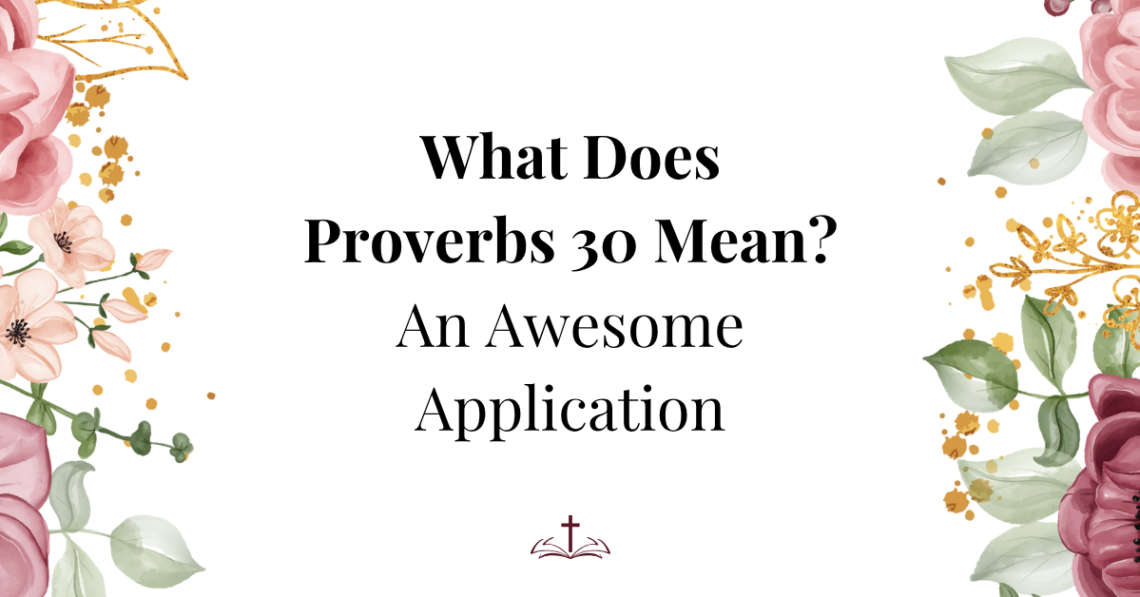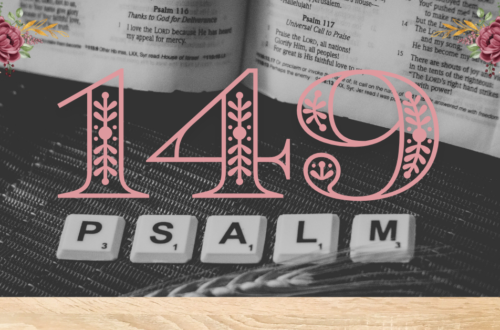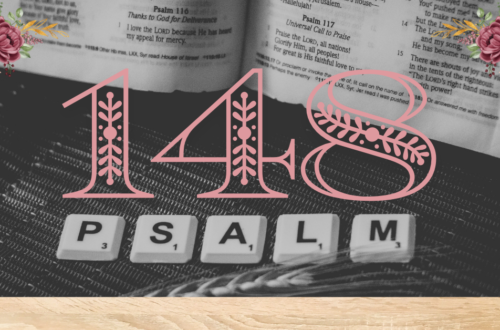Proverbs 30, attributed to Agur son of Jakeh, offers a unique perspective in the Book of Proverbs. Unlike other chapters that focus primarily on the wisdom of Solomon, this chapter presents the humble reflections and insights of Agur, who acknowledges his limited understanding of God’s ways. Proverbs 30 provides deep, practical wisdom in a poetic form, focusing on the mysteries of creation, the importance of contentment, and the dangers of arrogance and sin.
1. Understanding Proverbs 30
The Humble Confession of Agur (Verses 1–4)
Agur begins by acknowledging his limitations and the mystery of God’s greatness:
“I am the most ignorant of men; I do not have a man’s understanding. I have not learned wisdom, nor have I attained to the knowledge of the Holy One.” (Proverbs 30:2–3, NIV)
- Humility Before God: Agur starts with a humble admission that he is far from having full understanding, acknowledging that only God knows the depths of wisdom. This sets the tone for the rest of the chapter, reminding us that true wisdom begins with humility and recognition of God’s infinite knowledge.
The Mystery of God’s Creation (Verses 5–6)
Agur continues by marveling at the majesty of God’s creation, pointing to His perfect and trustworthy nature:
“Every word of God is flawless; he is a shield to those who take refuge in him. Do not add to his words, or he will rebuke you and prove you a liar.” (Proverbs 30:5–6, NIV)
- God’s Word is Flawless: Agur emphasizes the perfection and trustworthiness of God’s Word. His wisdom is not only flawless but also a shield for those who seek refuge in it. This reminds us of the importance of trusting God’s Word without trying to alter or add to it.
The Prayer for Contentment (Verses 7–9)
Agur prays for two things: wisdom and contentment. He asks God to help him avoid the dangers of both poverty and wealth:
“Give me neither poverty nor riches, but give me only my daily bread. Otherwise, I may have too much and disown you and say, ‘Who is the Lord?’ Or I may become poor and steal, and so dishonor the name of my God.” (Proverbs 30:8–9, NIV)
- Seeking Balance: Agur acknowledges that both wealth and poverty carry their own dangers. Wealth can lead to pride and self-sufficiency, while poverty can lead to temptation and dishonor. He seeks the balance of contentment, trusting in God for his daily needs.
A Warning Against Wickedness (Verses 10–14)
Agur presents a series of warnings about corrupt behavior and the consequences of sin:
“There are those who curse their fathers and do not bless their mothers; those who are pure in their own eyes and yet are not cleansed of their filth.” (Proverbs 30:11–12, NIV)
- Sin and Self-Deception: Agur warns against the dangers of self-righteousness and the tendency to justify one’s sins. He calls out people who live in hypocrisy, thinking themselves pure while remaining morally impure.
- Rebellion and Unrighteousness: The chapter highlights the destructive nature of arrogance, rebellion, and deceit, stressing the need for repentance and humility.
The Four Things that Are Never Satisfied (Verses 15–16)
Agur presents a list of things that are insatiable, showing us the destructive power of greed and desire:
“The leech has two daughters. ‘Give! Give!’ they cry. There are three things that are never satisfied, four that never say, ‘Enough!’: the grave, the barren womb, land, which is never satisfied with water, and fire, which never says, ‘Enough!’” (Proverbs 30:15–16, NIV)
- The Insatiability of Desire: These metaphors illustrate how unchecked desires—whether for power, wealth, or other sinful indulgences—can never be truly satisfied. Agur warns against the dangers of excessive greed and the pursuit of things that only lead to emptiness.
The Mystery of Creation (Verses 18–19)
Agur continues to marvel at the mysteries of God’s creation, specifically the way He designed the natural world to function:
“There are three things that are too amazing for me, four that I do not understand: the way of an eagle in the sky, the way of a snake on a rock, the way of a ship on the high seas, and the way of a man with a young woman.” (Proverbs 30:18–19, NIV)
- The Wonders of Creation: Agur highlights the mysteries in the natural world that elude human understanding. He compares these wonders to the mysterious ways of human relationships, emphasizing that some aspects of life are beyond our comprehension, and we must accept our limited understanding in the face of God’s vast wisdom.
The Destructive Power of Pride and Arrogance (Verses 21–23)
Agur presents a sobering warning about the consequences of pride and arrogance:
“Under three things the earth trembles, under four it cannot bear up: a servant who becomes king, a godless fool who gets plenty to eat, a contemptible woman who gets married, and a servant who displaces her mistress.” (Proverbs 30:21–23, NIV)
- Pride and Disruption: Agur observes how the earth trembles when pride and arrogance disrupt the natural order. The servant who becomes a king, or the fool who thrives, causes societal and relational instability. Agur warns us against pride and self-exaltation, urging us to recognize God’s authority and order in all things.
2. Applying Proverbs 30 to Everyday Life
Live with Humility
Agur’s humble confession reminds us to approach life with a posture of humility, acknowledging our limitations and the greatness of God. We must seek wisdom, not in our own understanding, but in the Word of God.
Practical Steps:
- Acknowledge Your Limitations: Recognize that we do not have all the answers and rely on God’s wisdom and understanding.
- Practice Humility: Avoid the temptation to boast in your knowledge or achievements. Instead, seek to glorify God in all things.
Seek Contentment in God’s Provision
Agur’s prayer for contentment reminds us that the pursuit of wealth or material gain can lead to pride and sin. Instead, we should trust in God’s provision for our daily needs.
Practical Steps:
- Pray for Balance: Ask God to help you find contentment in the present, without becoming overly attached to wealth or material things.
- Trust in God’s Timing: Whether in times of abundance or lack, trust that God will provide exactly what you need at the right time.
Guard Against Sinful Behavior
Agur warns against the destructive power of sin and self-deception. We must be vigilant in guarding our hearts against pride, hypocrisy, and rebellion.
Practical Steps:
- Examine Your Heart: Regularly evaluate your actions and attitudes, asking God to reveal any areas where you may be deceiving yourself.
- Repent and Seek Purity: When you recognize sin in your life, confess it to God and seek His forgiveness and cleansing.
Avoid the Dangers of Insatiable Desire
The insatiability of greed, lust, and desire can never be fulfilled. Agur’s wisdom cautions us to guard our hearts against excessive longing for things that will never satisfy.
Practical Steps:
- Recognize the Limits of Desire: Acknowledge that no amount of wealth, success, or material gain will ever satisfy your deepest needs.
- Pursue Contentment: Find joy in the simple, God-given blessings of life, and avoid chasing after things that lead to emptiness.
Acknowledge the Mystery of Creation
Agur’s reflections on the mysteries of life teach us that there are aspects of creation and human relationships that are beyond our understanding. We must embrace God’s sovereignty and trust that He knows what is best.
Practical Steps:
- Embrace Mystery: Accept that not everything in life will make sense, and trust that God’s plan is greater than our understanding.
- Reflect on Creation: Take time to marvel at the beauty and complexity of the world around you, recognizing God’s handiwork in all things.
3. The Call to Action
Proverbs 30 challenges us to live with humility, contentment, and wisdom, recognizing the dangers of pride, sin, and insatiable desire. As we apply these principles to our lives, we will grow in our relationship with God and experience His peace and provision.
1. Memorize Proverbs 30:8–9
Commit these verses to memory: “Give me neither poverty nor riches, but give me only my daily bread.” Reflect on how you can cultivate a heart of contentment and trust in God’s provision.
2. Reflect on Your Desires
Take time to evaluate your desires and ask yourself whether they align with God’s will. Are you pursuing things that will truly satisfy, or are you chasing after empty desires? Surrender your desires to God.
3. Practice Humility and Wisdom
Ask God to give you a humble heart and a desire for wisdom. Seek His guidance in all areas of life, trusting that His ways are higher than ours.
Conclusion
Proverbs 30 offers timeless wisdom on humility, contentment, and the dangers of sin and pride. Agur’s reflections challenge us to live with a balanced perspective, recognizing the mystery of God’s creation and the need for wisdom in every area of life. As you reflect on this chapter, ask yourself: Are you content with what God has given you? Are you guarding your heart from the dangers of sin and pride?
Take the next step by applying these principles to your daily life. Share your thoughts and experiences in the comments below, or visit Faith and Formulas for more resources to help you grow in wisdom and faith. Let’s walk this path together!






